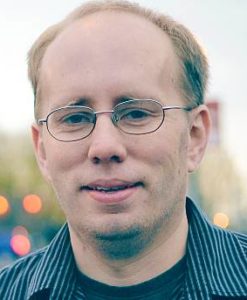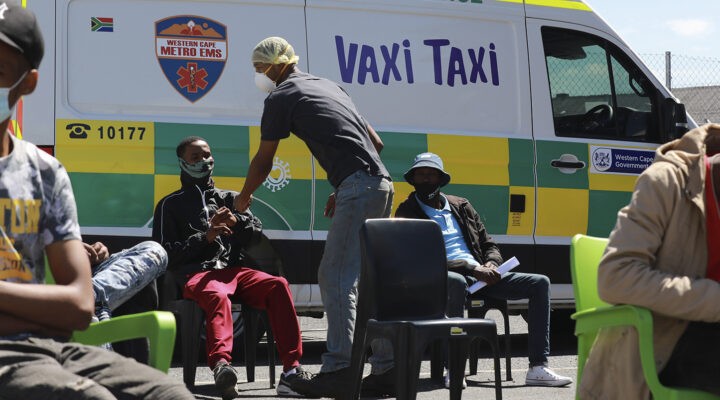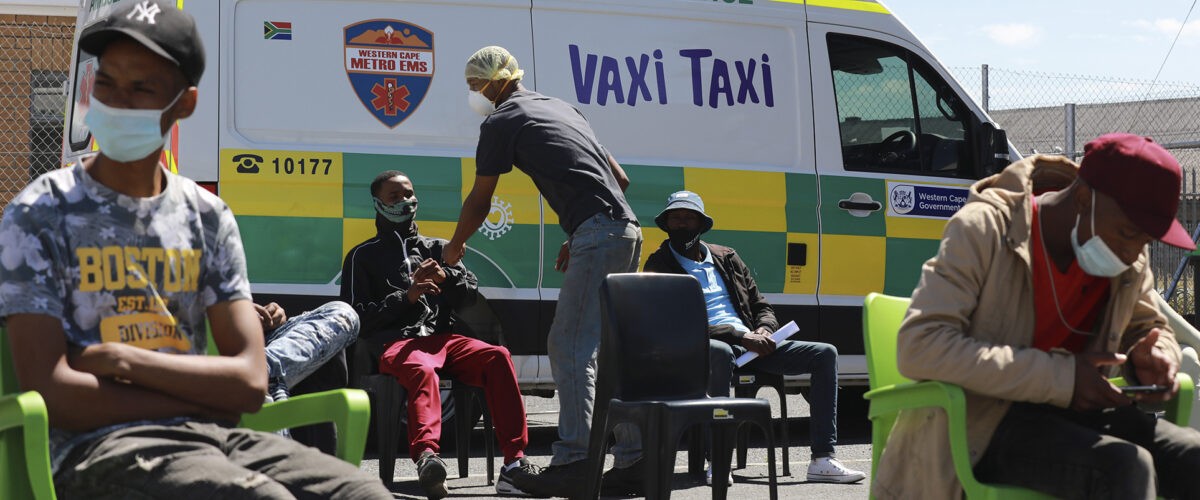7,500 miles. That’s the approximate distance between Johannesburg, South Africa — the city where the new Omicron COVID variant first was detected — and the East Coast of the United States. It would be at least a 12-day drive or a five-month walk if there were a bridge long enough. Even by air, it’s nearly 15 hours.
There is no earthquake, no hurricane, political revolution or nuclear bomb that could even remotely threaten us from this distance. Yet, 8,000 miles away, near the southern tip of the African continent, an incomprehensibly small virus has the entire world on edge.

Jason Koon
We don’t know a lot about the Omicron variant yet. We know it contains more than 30 mutations to the spike protein alone — a terrifyingly high number of mutations if you ask me. We know Omicron is traveling worldwide; it was first detected in the U.S. on Dec. 1 and already has spread to 25 states. We think it’s likely more transmissible and maybe even more able to slip the vaccine, but it’s still too early to know for sure. Finally, we know it was first detected in South Africa.
South Africa sits at the southern tip of the least-vaccinated continent in the world. As of April 20, the day all Americans became eligible for COVID vaccination, less than 300,000 people in South Africa, a nation of nearly 60 million, had received even one dose. Since then, the situation has improved slowly, but even as of Nov. 29, only 14.4 million South Africans were fully vaccinated. This is less than half the number of Americans who have already received their third booster shot.
It would be easy to write these inequities off as someone else’s problem. Sure, we feel bad about it, we’d love to be able to protect everyone immediately, but we have to do what we can do. We must protect ourselves first; look out for number one. America first, right?
“If there is one thing COVID has taught us since it first appeared in late 2019, it’s that we are all much more interconnected than we’d like to admit.”
If there is one thing COVID has taught us since it first appeared in late 2019, it’s that we are all much more interconnected than we’d like to admit. With COVID, none of us are fully protected until we are all fully protected, and a vaccine-resistant variant appearing in the most distant places in the world can instantly reverse every inch of progress we’ve made over the past two years.
For the first time in most of our lives, we have faced a crisis from which no amount of wealth, affluence or distance can insulate us. There is no border wall high enough, no gated community secure enough, no travel ban strict enough to keep COVID at bay.
Like it or not, my fate is inextricably linked to that of every other person on this planet, from Elon Musk to the most impoverished communities in the developing world. Once again, with the emergence of the new Omicron variant, this virus has eviscerated the American myth of individual responsibility and revealed that, when it comes to COVID, at least, humanity rises and falls together.
The prophet Amos delivers the same message in his scorching indictment of those in his day whom he says “oppress the poor and crush the needy.” Amos rails against those who live in luxury, unconcerned with their neighbors suffering in poverty. “I abhor the pride of Jacob,” God says as the prophet envisions a day, in the near future, when the Assyrian armies would advance on the land and the people, regardless of wealth or status, would meet their fate together.
“We no longer have the luxury of sitting back and resting on our fully vaccinated status while large regions of the world struggle to obtain the West’s leftover doses.”
With the emergence of the Omicron variant, we no longer have the luxury of sitting back and resting on our fully vaccinated status while large regions of the world struggle to obtain the West’s leftover doses. We rise and fall together, and if we don’t figure out how to more effectively combat misinformation and more equitably distribute resources, we’re going to find ourselves replaying the Omicron scare over and over again.
So as the prophet Amos wrote more than 2,500 years ago, “Let justice roll like a river.” It’s not just that we need to care for the less fortunate who depend on our pursuit of a more just and equitable society because we are all connected. We all desperately need to live in a world that takes God’s call to justice and equity much more seriously.
Jason Koon is an ordained Baptist minister who writes at the intersection of faith and politics. He lives in Western North Carolina with his wife and two teenage daughters. His “Almost Ex-evangelical” blog is at www.jason-koon.com.
Related articles:
While Americans reject COVID vaccines, other parts of the world beg for access
Honoring vaccination status is the next step for social justice | Opinion by Amber Cantorna
In Africa, the challenge is not just low vaccine numbers, there’s also vaccine hesitancy


